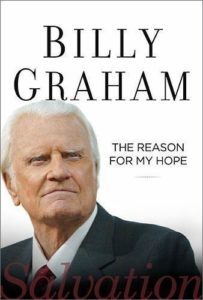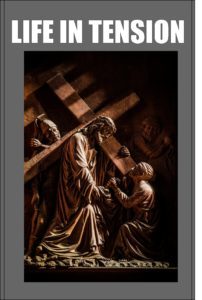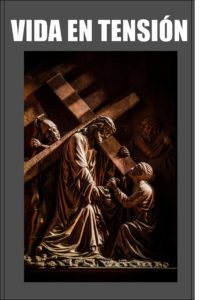Stephen W. Hiemstra's Blog, page 155
June 24, 2020
Water Cooler Observations, June 24, 2020

By Stephen W. Hiemstra
Racism as we know it, is a special type of bullying that preys on perceived weakness. Fear draws in bullies. Bullies pick their victims based on the likelihood that the victims will not fight back. I wrote about my own experience of being bullied as a kid in my memoir, Called Along the Way (Nemesis). Just like there will always be bullies; racism is an intractable issue that will never go away.
Analysts make a distinction between a problem that can be solved and a polarity that can only be managed. The reason that racism cannot be considered a problem to be solved because the bullying instinct is innate in all social animals. Bullying is used to establish dominance, the pecking order in a group of animals, birds, or even fish. Such behavior is tolerated by all societies, but it is also regulated by convention. Deer lock horns, but they do not gore each other; military officers are allowed to yell at enlisted personnel, but not lay a hand on them.
What makes Christianity radically different is that Jesus refused to tolerate the usual ways that societies establish dominance. We read in Matthew’s Gospel:
“You know that the rulers of the Gentiles lord it over them, and their great men exercise authority over them.It is not this way among you, but whoever wishes to become great among you shall be your servant.” (Matt 20:25-26).
As sons and daughters of the Lord, all bullying of any kind among disciples is forbidden. We are to earn respect by our service, not by bullying.
Lessons of History
The current interest in history is healthy provided the broader sweep of history is not forgotten.
The Emancipation Proclamation did not follow from a slave revolt but rather an outpouring of conscience, especially among northern churches. Slavery was inconsistent with Christian ethical values, especially the words of the Apostle Paul:
“There is neither Jew nor Greek, there is neither slave nor free, there is no male and female, for you are all one in Christ Jesus.” (Gal 3:28)
In todays’s language, no ethic group is better than any other, no economic class is better than any other, and no gender is better than any other. Because we are all children of the same Father God, work to mitigate the remnants of racism in our institutions deserve the broad support of Christians.
What Will Demonstrations Accomplish?
If racism is intractable, are the current demonstration pointless?
No. Not from the perspective of the recent history of demonstrations.
When I was in high school, I participated in demonstrations against the Vietnam War. Antiwar fervor helped elect Richard Nixon president, as the current demonstrations will likely turn the fall election against our current president. Nixon attempted to end the war by escalating the fights and the bombing.
The Vietnam War officially ended in 1975, seven years after the 1968 election that brought Nixon to power. The draft was abolished and an all-volunteer military established. Still, dirty little wars continue to haunt American foreign policy.
Earlier demonstrations after the assassination of Dr. Martin Luther King Jr. led to renewed emphasis on the Great Society legislation. The civil rights and Great Society legislation facilitated the development of a large black middle class in American that never previously existed. It also changed the tone of the public debate over race in American and made the election of Barack Obama possible.
What can we conclude from this brief experience with demonstrations? War, poverty, and racism have not been eliminated, but our public response to each of these issues has been responsive to the political aims of demonstrators.
If demonstrators continue to focus on policing policy, policy makers will likely be responsive. Virtually everyone believes that the policy should treat people with respect and enforce the law in an unbiased manner. Widening objectives to other issues will be unlikely to garner the same widespread support.
Policing Policy Reform
Racism is intractable. Until everyone sees others as brothers and sisters under the living God, we will have the polarity of racism. Policing policy is another matter.
Police are bureaucrats who are, like everyone else, are responsive to those that pay their wages. In poor neighborhoods, not everyone is a taxpayer who earns their respect. In areas with a weak tax base, police are also seriously underfunded and overworked. Financing problems lead to recruitment, training, and attitude problems. This is why almost all urban police belong to a union.
The usual response to complaints about policing is to fire those responsible and hire new leadership. This may help for a while, but if the underlying problems of financing, recruitment, and training are not addressed, new leadership will not offer lasting change.
A key issue in the current debate about racial disparities in policing is the effort after 9-11 for police departments to respond to the threat of terrorism. This is why many departments now have a swat team as well as military style weapons and training. If the local department thinks of itself as a de facto chapter in Homeland Security, it is not focused on urban policing, de-escalation of violence, and coping with the psychiatric cases walking the streets. Tight budgets have already been allocated to a different set of priorities with the encouragement of national leaders.
Looking to 2021
The point in raising these issue is that racial harmony is not the only issue facing police departments today. Those impatient for reform will likely be disappointed. I suspect that large scale reform efforts will not be possible until after the November elections and well into 2021.
In the meantime, little evidence of political reform can currently be seen. We have seen no congressional hearings, no presidential commissions, no white papers, and no appointments of police reform czars, normally the staples of a reform effort. Symbolic moves, like taking down a few confederate paintings in the Capitol Building, are evidence of political impotence, not reform. The political party conventions this summer will likely give us the first taste of what to expect in 2021.
Will these demonstrations alter the balance of power in the Congress in the fall? I suspect that we will not know until the votes are counted. At what point do demonstrators become vandals in the public eye? How many people have to die before people realize that demonstrations in a pandemic are a bad idea? Protracted demonstrations this summer could fuel resentment as well as support for reform.
Water Cooler Observations, June 24, 2020
Also see:
Water Cooler Observations, June 17, 2020
Water Cooler Observations, June 10, 2020
Water Cooler Observations, June 3, 2020
Water Cooler Observations, May 27, 2020
Water Cooler Observations, May 20, 2020
Water Cooler Observations, May 13, 2020
Water Cooler Observations, May 6, 2020
Water Cooler Observations, April 29, 2020
Interview about the Corona Life in English and Spanish with Stephen W. Hiemstra, April 24, 2020
Water Cooler Observations, April 22, 2020
Water Cooler Observations, April 15, 2020
Water Cooler Observations, April 8, 2020
Water Cooler Observations, April 1, 2020
Water Cooler Observations, March 25, 2020
Corona Virus Versus the Flu
Black Plague
CDC Flu Statistics
Managing Change
Believer’s Prayer
Other ways to engage online:
Author site: http://www.StephenWHiemstra.net
Publisher site: http://www.T2Pneuma.com.
Newsletter: https://bit.ly/HangHome_2020
The post Water Cooler Observations, June 24, 2020 appeared first on T2Pneuma.net.
June 23, 2020
Graham Shares his Journey

Billy Graham. 2013. The Reason for My Hope: Salvation. Nashville: W. Publishing Group (Thomas Nelson).
Reviewed by Stephen W. Hiemstra
Billy Graham celebrated his 95th birthday on November 7, 2013 with a new book: The Reason for My Hope. He writes to summarize the Good News that he preached during his ministry (vii).
Organization
Graham organized his book into eight chapters. The chapter titles are instructive because each chapter is well-named and self-contained. The titles are: Rescued for Something, The Great Redemption, Sin is In, The Price of Victory, Where is Jesus?, Defining Christianity in a Designer World, No Hope of Happy Hour in Hell, and He is Coming Back. Before these eight chapters is an introduction focused on hope and after them is an afterword, Living Life with Hope. The afterword talks about how to find Christ in six steps and includes a believer’s prayer.
Graham’s Distinctive Style
Graham’s writing style is distinctive. As a master of collage, Graham reads the times through highly personal stories of individuals that are like Norman Rockwell paintings that spring to life. In chapter one, for example, Graham takes us aboard the cruise ship, Costa Concordia, as it runs aground off the Italian coast. In an age of seemingly miraculous technology, Graham questions how the crew could make such simple mistakes and, having made them, could be so indifferent to the safety of passengers under their care (11). As the chapter draws to a close, Graham observes: when we are rescued from something, we also saved for something. In the words of former president, Ronald Reagan, after the assassination attempt on his life—I believe God spared me for a purpose (12). Indeed. We yearn to learn that purpose.
Observations on Culture
Graham’s comments about the dark side of postmodern culture are particularly pointed. Popular music, art, and film are infatuated with evil. The increasingly frequent occurrence of mass shootings, such as during the 2012 Dark Knight showing in Aurora, Colorado, almost panders to this infatuation (158). If God was willing to flood the earth in the time of Noah, exactly how can this generation avoid judgment when Christ returns? (168). In some sense, we are judged by our own indifference. Graham helps us taste, touch, and see our need for salvation in each of these accounts.
How to Evangelize
Part of the My Hope with Billy Graham campaign is to teach Christians how to assist seekers in coming to faith. Graham’s six steps to finding Christ include a series of musts–[you must] Be convinced that you need him, Understand the message of the cross, Count the cost, Confess Jesus Christ as Lord of your life, Be willing for God to change your life, and Desire nourishment from God (170-182). In the words of the Apostle Paul: everyone who calls on the name of the Lord will be saved (Romans 10:13 ESV).
Graham as Innovator
To understand Graham’s success as a writer and as an evangelist, one needs to understand that he was one of the first evangelists to understand how truly to engage the culture and present the Gospel with multi-media. His use of collage in writing, for example, shares a lot in common with the use of vignettes in a mini-series. Collage appears simple, but its construction is highly complex.
Graham’s writing is very engaging. The Reason for My Hope is classic Graham.
Graham Shares his Journey
Also see:
Books, Films, and Ministry
Other ways to engage online:
Author site: http://www.StephenWHiemstra.net,
Publisher site: http://www.T2Pneuma.com.
Newsletter: https://bit.ly/HangHome_2020
The post Graham Shares his Journey appeared first on T2Pneuma.net.
June 22, 2020
Mercy as a Path: Monday Monologues (podcast) June 22, 2020
 Stephen W. Hiemstra 2020 (Ken Burtram Photography)
Stephen W. Hiemstra 2020 (Ken Burtram Photography)By Stephen W. Hiemstra
This morning I will share a prayer and reflect on Mercy as a Path to Salvation. After listening, please click here to take a brief listener survey (10 questions).
To listen, click on this link.
Hear the words; Walk the steps; Experience the joy!
Mercy as a Path: Monday Monologues (podcast) June 22, 2020
Also see:
Monday Monologue On March 26, 2018
Other ways to engage online:
Author site: http://www.StephenWHiemstra.net,
Publisher site: http://www.T2Pneuma.com.
Newsletter: https://bit.ly/HangHome_2020
The post Mercy as a Path: Monday Monologues (podcast) June 22, 2020 appeared first on T2Pneuma.net.
June 21, 2020
Prayer of Confession and Blessing

By Stephen W. Hiemstra
Merciful Father, Beloved Son, Ever-present Spirit,
We praise you, Lord, for your mercy, grace, patience, love, and faithfulness; for healing us of our afflictions, for forgiving our sin, and for your presence in our life; for in you we find faith, hope, and love, as nowhere else.
We confess that you alone are God, yet we make idols of machines, institutions, and our own pet theories. We have not followed the example of your son, Jesus Christ, and have set our own desires above our families, friends, and even your church. Forgive our sin; overlook our transgressions; and heal us of our iniquity—that we might be whole again and restored to your presence.
We give thanks for the many blessings that you have freely given us: our families, our health, our work, and even life itself.
We ask you now to bless us that we might bless others. In Jesus’ name, Amen.
Prayer of Confession and Blessing
Also see:
Believer’s Prayer
Other ways to engage online:
Author site: http://www.StephenWHiemstra.net
Publisher site: http://www.T2Pneuma.com.
Newsletter: https://bit.ly/HangHome_2020
The post Prayer of Confession and Blessing appeared first on T2Pneuma.net.
Oración de Confesión y Bendición

Por Stephen W. Hiemstra
Misericordioso Padre, Amado Hijo, Eternamente Presente Espíritu,
Te alabamos, Señor, por tu misericordia, gracia, paciencia, amor, y fidelidad; por sanarnos de nuestras aflicciones, por perdonarnos pecados, y por tu presencia en nuestras vidas; porque en tí encontramos fe, esperanza, y amor, como en ningún otro lugar.
Confesamos que solo tu eres Dios, sin embargo, hacemos ídolos de máquinas, instituciones y nuestras propias teorías favoritas. No hemos seguido el ejemplo de tu hijo, Jesucristo, y hemos puesto nuestros propios deseos por encima de nuestras familias, amigos e incluso tu iglesia. Perdona nuestro pecado; pasar por alto nuestras transgresiones; y sananos de nuestra iniquidad—para que podamos ser completos nuevamente y restaurados a tu presencia.
Te damos gracias por las muchas bendiciones que nos has dado libremente: nuestras familias, nuestra salud, nuestro trabajo e incluso la vida misma.
Te pedimos ahora que bendíganos para que podemos bendecir los demás. En el nombre de Jesús, Amén.
Oración de Confesión y Bendición
Ver también:
Oración del Creyente
Otras formas de participar en línea:
Sitio del autor: http://www.StephenWHiemstra.net,
Sitio del editor: http://www.T2Pneuma.com.
Boletín informativo: https://bit.ly/HangHome_2020
The post Oración de Confesión y Bendición appeared first on T2Pneuma.net.
June 19, 2020
Mercy as a Path to Salvation

Go and learn what this means, I desire mercy, and not sacrifice.
For I came not to call the righteous, but sinners. (Matt 9:13)
By Stephen W. Hiemstra
Asking for mercy and offering mercy both evoke tension with God because we prefer not to shine a light on our own sin or the sin of others. In dealing with our own sin, Jesus cites the same verse from the Prophet Hosea twice after the Fifth Beatitude (Matt 9:13, 12:7): For I desire steadfast love and not sacrifice, the knowledge of God rather than burnt offerings. (Hos 6:6) Pagan worship attempts to manipulate the gods with sacrifices, which today can take the form of offerings, overt righteousness, prayers, church attendance, or XYZ actions done, not out of thanksgiving, but out of a desire to manipulate God.
An important lesson on mercy shows up the story of the Good Samaritan when a lawyer asks Jesus, “And who is my neighbor?” (Luke 10:29). After telling the story, Jesus asks,“Which of these three, do you think, proved to be a neighbor to the man who fell among the robbers?” (Luke 10:36), substituting the question—“who proved to be a neighbor”—for the lawyer’s question—“who is my neighbor”—and eliciting the lawyer’s response—“The one who showed him mercy.” (Luke 10:37) Notice how the story started out talking about neighborly love, but ended up talking about mercy? By turning a direct object (neighbor) into a verb (to be a neighbor) Jesus redirects the lawyer’s question from who can be excluded as a neighbor to how we can become a better neighbor.
Mercy is a fitting focus of the story of the Good Samaritan because Jews hated Samaritans. The Samaritan had to overcome prejudice (show mercy) in order to show love to the man left for dead. In the same way, we experience God’s love through his mercy, as in this verse: The LORD, the LORD, a God merciful and gracious, slow to anger, and abounding in steadfast love and faithfulness. (Exod 34:6) Notice that this verse includes both mercy and love, but mercy comes first.
James concludes much the same from God’s attributes when he observes: For judgment is without mercy to one who has shown no mercy. Mercy triumphs over judgment. (Jas 2:13) Here James has restated Jesus’ Beatitude in the negative—it is a curse to be judged without mercy. Judgment requires truth, which—like love—follows mercy on the list of God’s attributes.
The link between judgment and mercy points us back to the atoning work of Christ, as the Apostle Peter observed:
Blessed be the God and Father of our Lord Jesus Christ! According to his great mercy, he has caused us to be born again to a living hope through the resurrection of Jesus Christ from the dead, to an inheritance that is imperishable, undefiled, and unfading, kept in heaven for you, who by God’s power are being guarded through faith for a salvation ready to be revealed in the last time. (1 Pet 1:3-5)
The path to salvation through Christ is by way of his mercy.
Mercy as a Path to Salvation
Also see:
Preface to a Life in Tension
Other ways to engage online:
Author site: http://www.StephenWHiemstra.net
Publisher site: http://www.T2Pneuma.com
Newsletter: https://bit.ly/Release_2020
The post Mercy as a Path to Salvation appeared first on T2Pneuma.net.
Misericordia como Camino a Salvación

Pero vayan, y aprendan lo que significa: misericordia quiero no sacrificio;
porque no he venido a llamar a justos, sino a pecadores. (Matt 9:13)
Por Stephen W. Hiemstra
Pedir misericordia y ofrecerla ambos evocan tensión con Dios porque preferimos no arrojar luz sobre nuestro proprio pecado o el pecado de los demás. Al tratar con nuestro proprio pecado, Jesus cita el mismo versículo del profeta Oseas dos veces después la Quina Bienaventuranza (Matt 9:13, 12:7): Porque Me deleito más en la lealtad (misericordia) que en el sacrificio, Y en el conocimiento de Dios que en los holocaustos. (Hos 6:6) La adoración pagana intenta manipular los dioses con sacrificios, lo que hoy dia puede tomar la forma de ofrendas, rectitud abierta, oraciones, asistencia a la iglesia o acciones XYZ realizadas, no por acción de gracias, sino por un deseo de manipular a Dios.
Una importante lección sobre la misericordia muestra la historia del buen samaritano cuando un abogado le pregunta a Jesús, ¿Y quién es mi prójimo? (Luke 10:29). Después de contar la historia, Jesús pregunta: ¿Cuál de estos tres piensas tú que demostró ser prójimo del que cayó en manos de los salteadores? (Luke 10:36), substituyendo la pregunta—que demostró ser prójimo—para la pregunta del abogado—quién es mi prójimo—y suscitando la respuesta del abogado—El que tuvo misericordia de él (Luke 10:37). ¿Te das cuenta de que la historia comenzó hablar sobre el amor prójimo, pero terminó hablar sobre la misericordia? Al convertir un objeto directo (el prójimo) en un verbo (ser un prójimo) Jesus redirige la pregunta del abogado de quién puede ser excluido como un prójimo a cómo podemos convertirnos en un mejor prójimo.
La misericordia es un enfoque apropiado de la historia del buen samaritano porque los judíos odiaban a los samaritanos. El samaritano tuvo que vencer los prejuicios (mostrar misericordia) para que mostrar amor al hombre dejado por muerto. Igualmente, experimentamos el amor de Dios a través de su misericordia, como en este versículo: El SEÑOR, el SEÑOR, Dios compasivo y clemente, lento para la ira y abundante en misericordia y verdad (fidelidad). (Exod 34:6) Tenga en cuenta que este versículo incluye misericordia y amor, pero la misericordia es lo primero.
Santiago concluye lo mismo de los atributos de Dios cuando observa: Porque el juicio será sin misericordia para el que no ha mostrado misericordia. La misericordia triunfa sobre el juicio. (Jas 2:13) Aquí, Santiago ha reiterado la Bienavenanza de Jesús en negativo—es una maldición ser juzgada sin misericordia. El juicio require verdad, lo que—como el amor—sigue misericordia en la lista de los atributos de Dios.
El vínculo entre el juicio y la misericordia nos remite a la obra expiatoria de Cristo, como observó el apóstol Pedro:
Bendito sea el Dios y Padre de nuestro Señor Jesucristo, quien según Su gran misericordia, nos ha hecho nacer de nuevo a una esperanza viva, mediante la resurrección de Jesucristo de entre los muertos, para obtener una herencia incorruptible, inmaculada, y que no se marchitará, reservada en los cielos para ustedes. Mediante la fe ustedes son protegidos (guardados) por el poder de Dios, para la salvación que está preparada para ser revelada en el último tiempo. (1 Pet 1:3-5)
El camino de salvación a través de Cristo es por manera de su misericordia.
Misericordia como Camino a Salvació
Ver también:
Gospel as Divine Template
Otras formas de participar en línea:
Sitio del autor: http://www.StephenWHiemstra.net,
Sitio del editor: http://www.T2Pneuma.com.
Boletín informativo: https://bit.ly/Ready_2020
The post Misericordia como Camino a Salvación appeared first on T2Pneuma.net.
June 17, 2020
Water Cooler Observations, June 17, 2020

By Stephen W. Hiemstra
Corona crazy describes a lot of the odd behavior that we have witnessed in others. How else can you explain people ignoring social distancing and acting as if the pandemic had passed? Partying, demonstrating, and politicians doing what they do all seems out of place. So do the periodical stock market ralleys.
Corona crazy is like responses to a game of Russian roulette. Some just don’t seem to understand the rules of the game and get killed out of ignorance, like the guy who plays with an automatic instead of a revolver. Some run from game screaming and get killed running through traffic. Others get a buzz on pulling the trigger and start twirling the cylinders like there’s no tomorrow. Russian roulette is risky enough, let alone compound the risk by loosing your head.
Corona crazy aptly diagnoses my own sentiments over the past few weeks. After my friends at El Shadai DC prayed over me last week, my crazy fever lifted and I felt at peace, something obvious only after a couple of days had passed. I no longer felt anxious and have been able to work in my usual custom.
Experiences of Loneliness
The isolation over the past several months is reminiscent of summers on my grandparent’s farm in Oskaloosa, Iowa when I was growing up. We spent most of our time gardening, cooking, or doing chores, but gathered for meals and rested in the heat of the day near the air conditioner that hung out the family room window. Saturdays we might go to town for groceries or grandma’s hair appointment, but we really only saw friends and family on Sundays in church.
Did people go crazy on the farm? Normally only in winter when the weather served as a pre-existing condition. More normally, they simply learned to appreciate the people they met.
The Holocaust and the Affliction of Despair
Corona crazy is a bit different from normal loneliness because normal loneliness does not evoke the fear that someone near and dear to you will develop a life-threatening illness. Corona crazy shares more in common with the experience in the death camps during the holocaust recorded by Viktor Frankl.
While other camp inmates experienced such despair that they committed suicide by attempting to escape through the barbed wire fences around the camps, Frankl contemplated the lectures that he would give after the war on the psychology of the concentration camp! (Frankl 2008, 82) Because 27 out 28 inmates did not survive, clearly Frankl’s mental exercise proved resourceful and had a familiar ring.
Because we know that our future is in Christ, we need not despair about current circumstances.
How will your life be different after we have a vaccine and can return to a more normal life?
References
Frankl, Viktor E. 2008. Man’s Search for Meaning: A Classic Tribute to Hope from the Holocaust (Orig Pub 1946). Translated by Ilse Lasch. London: Rider. (review)
Lucad, .Max. 2009. Fearless: Imagine Your Life Without Fear. Nashville: Thomas Nelson. (review)
Water Cooler Observations, June 17, 2020
Also see:
Water Cooler Observations, June 10, 2020
Water Cooler Observations, June 3, 2020
Water Cooler Observations, May 27, 2020
Water Cooler Observations, May 20, 2020
Water Cooler Observations, May 13, 2020
Water Cooler Observations, May 6, 2020
Water Cooler Observations, April 29, 2020
Interview about the Corona Life in English and Spanish with Stephen W. Hiemstra, April 24, 2020
Water Cooler Observations, April 22, 2020
Water Cooler Observations, April 15, 2020
Water Cooler Observations, April 8, 2020
Water Cooler Observations, April 1, 2020
Water Cooler Observations, March 25, 2020
Corona Virus Versus the Flu
Black Plague
CDC Flu Statistics
Managing Change
Believer’s Prayer
Other ways to engage online:
Author site: http://www.StephenWHiemstra.net
Publisher site: http://www.T2Pneuma.com.
Newsletter: https://bit.ly/Release_2020
The post Water Cooler Observations, June 17, 2020 appeared first on T2Pneuma.net.
June 16, 2020
Lucado Calls Out Fear

Max Lucado. 2009. Fearless: Imagine Your Life Without Fear. Nashville: Thomas Nelson.
Review by Stephen W. Hiemstra
Do you believe in divine intervention? I do. Let me give an example.
In 2010, I signed up for a small group discussion at church. A couple days later the small group coordinator called to ask me: because the group that I have signed up for was over-subscribed, would I be willing to join another group? No problem, I said reluctantly thinking to myself–why would I want to join a group proposing to talk about fear? So I bought the book. As I started reading, I found my life jumping off the pages–not only had fear crept into my life; it was quietly dictating a lot of my decisions. Through almost no effort on my part, God had directed me to a major stronghold in my life and helped me deal with it (Psalm 18:2).
What was the book? It was Max Lucado’s Fearless: Imagining Your Life Without Fear.
Introduction
Lucado observes that: ordinary children today are more fearful than psychiatric patients were in the 1950s (5). He goes on to observe that fear displaces happiness; fear is unproductive; fear is self-defeating. Jesus spoke out against fear, for example, after the storm on the Galilee saying: why were you afraid? (Matthew 8:26; 6) In suggesting the destructive potential of fear, Lucado (9) cites Martin Niemoeller’s observation in 1933 that the tyrant that Adolf Hilter became was born in fear. Is it any wonder that Christ is famous for bringing peace: Don’t let your hearts be troubled. Trust in God, and trust also in me (John 14:1 NLT; 11)?
Organization
Lucado’s book is organized in 15 chapters. The first chapter, partially summarized above, poses the question: why are we afraid? The next 13 chapters focus on case studies of fears that we commonly confront–fear of not mattering, of disappointing God, of running out, of not protecting our kids, of overwhelming challenges, of worst-case scenarios, of violence, of the coming winter, of life’s final moments, of what’s next, that God is not real, of global calamity, of God getting out of my box. The final chapter concludes with stories reiterating the problems caused merely by fear and with people’s responses to tragedy. The final of these is the story of a young missionary who, as he watched his home burned the ground, recited a psalm and found solace in God (178-180). After the conclusions, Lucado provides a discussion guide with questions for small groups. In my own small group, we also viewed a related DVD based video.
Fears Need to Be Named
When Jesus cast the unclean spirit out of the man in the Gerasenes, he started by asking: What is your name? (Mark 5:9 ESV). Lucado approaches our fears in a similar matter. By naming our fears, he deprives them of their power. He then redirects us to God where the power of the Holy Spirit may be found.
Parental Fear
Perhaps one of the most insidious fears is the fear of parents that they will be powerless to protect their kids. This is especially true of your first child because you feel totally unprepared for the job of parenting and terribly vulnerable. Lucado (57) notes that: fear distilleries concoct a high-octane brew for parents–a primal gut-wrenching, pulse-stilling dose. When our children have teachable moments, Lucado (60) observes that out of fear we often become both paranoid and permissive when we should be trusting God and modeling trust to our children.
He recommends that we pour our fears out to God, not to our children, and pray with them about the issues that they confront (61). The principle here is that: we cannot protect our children from every threat in life, but we can take them to the Source of Life (61). Remember that young children often look at their parents before they decide to cry–even when badly injured–and, when they see we are afraid, they cry. Throughout his discussion, Lucado looks to scripture for guidance. In this chapter, he reviews stories of Abraham (Genesis 22), Jairus (Luke 8), the Canaanite woman (Matthew 15), and the father with the epileptic son (Matthew 17), but lingers longest on the story of Jairus. He concludes that clearly: God has a heart for hurting parents (63).
Assessment
Max Lucado’s Fearless is a book to read and pass around. His writing contains numerous stories which makes his writing both accessible and interesting. After 9-11, after so many years of the Great Recession and war, Fearless is clearly a book for our times.
Lucado Calls Out Fear
Also see:
Books, Films, and Ministry
Other ways to engage online:
Author site: http://www.StephenWHiemstra.net,
Publisher site: http://www.T2Pneuma.com.
Newsletter: https://bit.ly/Ready_2020
The post Lucado Calls Out Fear appeared first on T2Pneuma.net.
June 15, 2020
Core Values: Monday Monologues (podcast) June 15, 2020
 Stephen W. Hiemstra 2020 (Ken Burtram Photography)
Stephen W. Hiemstra 2020 (Ken Burtram Photography)By Stephen W. Hiemstra
This morning I will share a prayer and reflect on God’s core values. After listening, please click here to take a brief listener survey (10 questions).
To listen, click on this link.
Hear the words; Walk the steps; Experience the joy!
Core Values: Monday Monologues (podcast) June 15, 2020
Also see:
Monday Monologue On March 26, 2018
Other ways to engage online:
Author site: http://www.StephenWHiemstra.net,
Publisher site: http://www.T2Pneuma.com.
Newsletter: https://bit.ly/Ready_2020
The post Core Values: Monday Monologues (podcast) June 15, 2020 appeared first on T2Pneuma.net.



